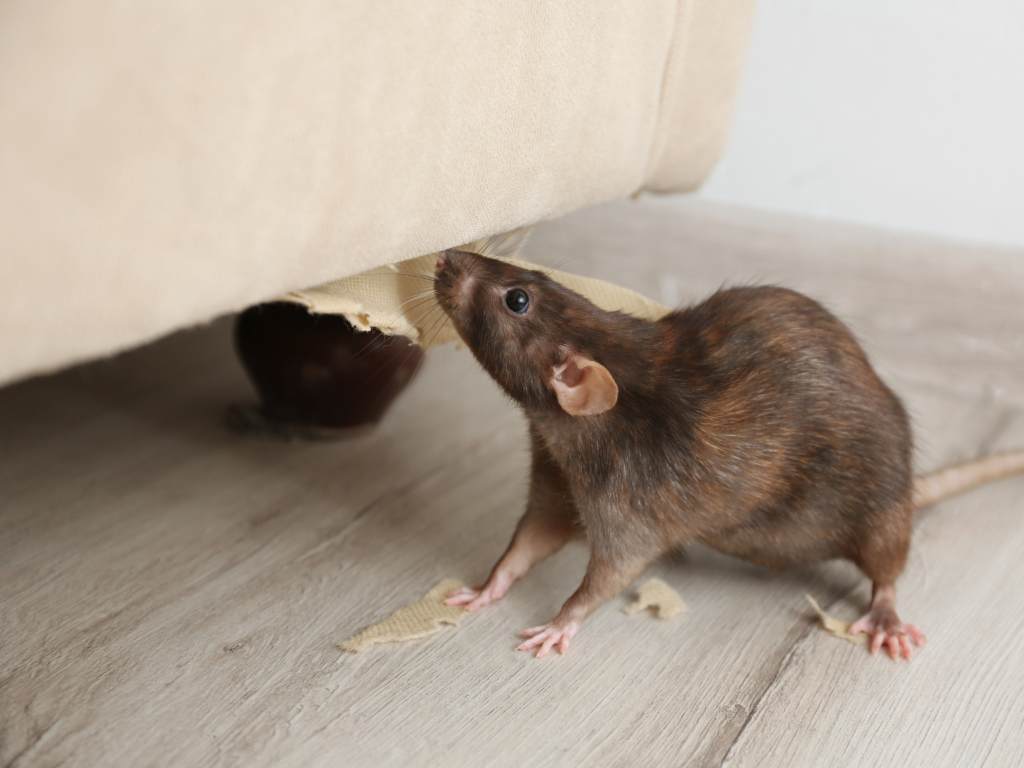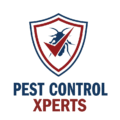Rat Control and Rodent Extermination in Titusville, Florida, Pest Control Xperts
In Titusville, the sound of heavy thumping in the attic or the discovery of chewed wires often points to one specific culprit: rats. Our area, with its abundance of citrus trees, palm canopy, and proximity to the Indian River, is a prime habitat for Roof Rats (often called Fruit Rats). These pests are not just outdoor annoyances; they are agile climbers that view your home as a safe, dry nesting ground. At Pest Control Xperts, we specialize in aggressive rat control and rodent extermination services designed to protect your property from the severe damage these large rodents cause.
Unlike smaller house mice, rats require significant resources and are incredibly destructive. They can chew through PVC pipes, lead flashing, and even concrete to gain access. Dealing with them requires more than just a few traps set on the floor. It requires a strategy that looks at the entire building envelope. Our team in Titusville, Mims, and Port St. John provides thorough rodent inspections and exclusion services. We seal the entry points and remove the population, ensuring your home is secure against future invasions.
Rodent Problems We Solve in Titusville
Rats in Brevard County are commensal, meaning they thrive near humans. They take advantage of our lush landscaping and older home structures. A rat infestation is a serious sanitation issue. They carry pathogens and their droppings can contaminate insulation and air ducts. Furthermore, their need to gnaw on hard surfaces to keep their teeth filed down puts your home at risk of electrical fires and water leaks.
We solve the problem of recurring rodent entry. Many homeowners trap a rat only to hear another one the next night because the entry hole was never found. We use advanced pest tracking and inspection methods to locate the “superhighways” rats use to enter your attic and walls. We provide infestation control that stops the cycle of entry, nesting, and breeding.
Common signs of a rat issue:
- Loud scratching, running, or thumping sounds in the attic at night
- Large, capsule shaped droppings (3/4 inch long) in the attic or garage
- Gnaw marks on door frames, roof eaves, or wooden beams
- Grease marks (sebum) rubbed along rafters or walls where fur touches
- Hollowed out oranges, grapefruit, or avocados in the yard
- Burrows or holes in the ground near the foundation or shed
- Urine stains on ceilings or strong ammonia odors
- Pets acting agitated or staring at the ceiling

Types of Rat Issues We Handle
Roof Rat (Fruit Rat) Infestations
The Roof Rat is the dominant species in Titusville. They are acrobatic climbers that spend 90% of their time off the ground. They enter homes through soffit vents, roof returns, and power line connections. They prefer to nest in the upper parts of the house, burying themselves in attic insulation. Controlling them requires a top down approach.
What we look for during inspection:
- Tree branches touching the roofline
- Torn screens on roof vents or gable vents
- Gaps where the soffit meets the roof tiles
- Runways along fences and utility lines
How we approach treatment:
We focus on rodent barrier installation at the roof level. We seal roof returns and vents with heavy duty hardware cloth that rats cannot chew through. We place high impact traps directly on the attic runways where the rats feel safe. We also advise on vegetation management to break their bridge to your home.
Norway Rat and Outdoor Burrows
While less common in attics, Norway Rats (sewer rats) are sometimes found in Titusville, particularly near canals or commercial areas. They are larger, burrowing rodents that nest in the ground. They often tunnel under foundations or concrete slabs, causing structural instability. They enter homes through ground level gaps or compromised sewer lines.
What we look for during inspection:
- Active burrows near the foundation or wood piles
- Gnaw marks on the bottom of garage door seals
- Damaged crawlspace screens
- Signs of digging near AC pads or pool pumps
How we approach treatment:
We treat these active burrows directly and install exterior bait stations to reduce the population pressure around the home. We focus on exclusion techniques for pests at the ground level, reinforcing weak points in the foundation and sealing utility penetrations.
Rodent Exclusion and Sanitation
Removing the rats is only half the battle. If the scent of their urine remains, it acts as a beacon to other rodents in the neighborhood. Additionally, compromised insulation can harbor parasites. Proper exclusion and cleanup are vital for long term success.
What we look for during inspection:
- Heavily soiled insulation areas
- Droppings in air ducts
- Gaps in plumbing chases inside walls
How we approach treatment:
We seal the structure using construction grade materials like copper wool, steel mesh, and concrete. We do not use foam, as rats chew right through it. We also offer guidance on pest sanitation services, helping to disinfect areas to neutralize odors and pheromones that attract new pests.

Our Rodent Inspection and Treatment Approach
At Pest Control Xperts, we view rat control as a construction project as much as a pest control service. Our pest inspection is exhaustive. We crawl into the tight spaces of your attic and inspect the entire roofline. We look for “rub marks,” which are dark, greasy stains left by the oil in the rat’s fur as they squeeze through gaps. Identifying these entry points is the key to our success.
Our treatment strategy emphasizes trapping over poisoning inside the home. Using poisons indoors can lead to rats dying inside wall voids, creating terrible odors and secondary fly problems. We use snap traps and capture systems placed along established runways. This allows us to verify the catch and remove the carcass.
We also focus on long term pest prevention. We install tamper resistant exterior bait stations to handle the population in the yard before they try to break in. This creates a perimeter defense. Our pest assessment services include checking these stations regularly and monitoring for new activity. We believe in safe pest management that protects non target wildlife and pets while effectively eliminating the rodent threat.
Rat Prevention and Landscape Management
In Titusville, your yard often determines your risk level. Fruit trees and dense vegetation are major attractants. By managing your landscape, you can make your property less appealing to rats. We provide property pest management advice tailored to your specific lot.
Preventative steps that actually help:
- Install rat guards (metal bands) on the trunks of fruit trees and palms
- Harvest citrus and avocados as soon as they ripen
- Keep palm trees trimmed to prevent “skirts” of dead fronds where rats nest
- Store pet food in metal containers with tight lids
- Eliminate standing water sources like bird baths or pet bowls at night
- Keep debris piles and lumber off the ground
- Ensure all roof vents have secure, rust free screens
- Close the garage door immediately after entering or exiting
- Keep compost bins sealed and away from the house
These pest deterrent strategies are your first line of defense. When combined with our professional exclusion work, they create a hostile environment for rodents.

Residential and Commercial Rat Control
Rats are a problem for everyone. Our residential pest control services are designed to restore the safety and hygiene of your home. We understand the sleepless nights caused by scratching in the ceiling, and we work quickly to resolve the issue. We handle the trapping and removal discreetly.
For businesses, rats can destroy inventory and ruin reputations. Restaurants, warehouses, and office buildings in Titusville trust us for commercial pest services. We provide documentation for health inspectors and implement aggressive exterior control programs. Our commercial pest eradication is focused on zero tolerance. We identify structural vulnerabilities in commercial buildings, such as loading docks and dumpster areas, and provide the exclusion solutions needed to keep your facility secure.
Professional Rat Extermination vs DIY Methods
Homeowners often try to handle rats with store bought traps, but rats are “neophobic,” meaning they are afraid of new objects. An improperly placed trap will simply be avoided, making the rat harder to catch later. Furthermore, tossing poison blocks into an attic is risky and often ineffective against Roof Rats that are feeding on fruit outside.
Professional pest exterminators understand rat behavior. We know how to pre-bait traps to gain the rat’s trust before setting them. We have access to professional grade materials for sealing the home—materials that rats cannot gnaw through. We also have the safety equipment to work in attics where breathing dust and particulates can be hazardous. By choosing professional pest control, you are ensuring that the infestation is handled safely, humanely, and completely.
Frequently Asked Questions About Rat Control
Do you offer rat removal in Titusville and nearby areas?
Yes, we serve Titusville, Mims, Port St. John, Cocoa, and the surrounding areas. We are experts in controlling the Roof Rats and Norway Rats found in our region.
How do I know if it is a rat or a raccoon in the attic?
Rats typically make scratching or scurrying sounds, while raccoons sound like heavy thumping or walking. Raccoons are also more likely to be active at dawn and dusk. An inspection of droppings and entry points will confirm the species.
Will the rats chew through the foam sealant?
Yes, rats can easily chew through expanding foam. That is why we use steel wool, copper mesh, and hardware cloth backed by sealant. We use materials that physically stop them.
How long does it take to trap them all?
Once the home is sealed, trapping usually takes 5 to 14 days, depending on the population size. We monitor the traps until activity ceases completely.
Is the bait safe for my dogs?
We use tamper resistant bait stations for exterior control. These are weighted and locked so dogs cannot access the bait. Inside the home, we generally use traps in inaccessible areas like the attic to ensure pet safety.
Why are there rats in my toilet?
Though rare, rats can swim up sewer pipes and emerge in toilets, usually if there is a break in the sewer line or a missing check valve. We can help identify if this is a plumbing related entry issue.
Do you remove the dead rats?
Yes, checking traps and removing carcasses is a key part of our service. This prevents odors and secondary pest issues like flies.
Is there a local rat exterminator near me?
Pest Control Xperts is your local resource in Brevard County. We are nearby and ready to respond to your rodent emergency.
Service Area for Rat Control in and Around Titusville, Florida
We are proud to serve the Space Coast community. From the riverfront properties where rats thrive in the mangroves to the suburban homes with mature oak trees, we have the local expertise to handle the job.
We serve the following neighborhoods and nearby areas:
- Titusville
- Mims
- Port St. John
- Cocoa
- Merritt Island
- Cape Canaveral
- Scottsmoor
Zip codes we serve: 32780, 32781, 32783, 32796, 32927, 32922
Conclusion
Rats are smart, destructive, and dangerous to your home’s infrastructure. Do not let them get comfortable in your attic. At Pest Control Xperts, we have the tools and the training to lock them out for good. We provide the comprehensive rat control and rodent exclusion services you need to sleep soundly again.
Protect your home from damage. Let our local team handle the problem.
Contact us today to schedule your rodent inspection.
